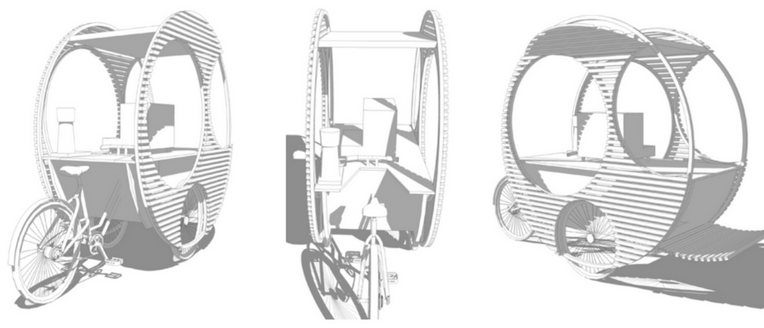Budapest-based coffee startup Bariksa is raising money for its project on Indiegogo, having set a flexible goal of collecting USD 40,000 for kickstarting its business. The app-based coffee tricycle service could start as early as next February, Bariksa told the Budapest Business Journal.
Having started planning in 2012, Bariksa aims to offer an eco-friendly and solar-powered solution for Budapest residents, enabling them to order their coffee via a mobile phone application and pick it up from one of the Bariksa tricycles preparing and selling the coffee.
The USD 40,000 goal the startup has set on Indiegogo would cover the realization of the first four Bariksa eco-tricycles, licensing costs, 100% arabica coffee, the development of the app, some advertising and the first Bariksers, the founders expect.
“Sustainability, intergenerational responsibility, eco-friendly activities and minimization of our impact on the environment are fundamental principles to us and, as such, guide our vision, our actions, our hearts,” the Indiegogo description says.
After raising the money, the startup expects to need two months to get the four prototype Bariksas ready.
“The campaign is scheduled to end on November 30 this year, which means weʼll ideally be ready to operate from February next year,” Paola Kaniki de Beno, who is in charge of the startup’s external communications, told the Budapest Business Journal today.
No such service is provided in Budapest today, Kaniki de Beno stressed, adding that “the closest version could be BITEʼs coffee food truck, but that is a standard, traditional food truck, as it does not move and does not integrate any smart technology.”
At first the startup is planning to cover the busiest central areas in Budapest. “Weʼre looking forward to having each central and busy area covered, both on the Pest and Buda sides,” Kaniki de Beno added.
Kaniki de Beno described the expansion possibilities as limitless. “More Bariksas can be added to Budapest and outside the capital too, as well as abroad, as we would be able to replicate the business model anywhere in Europe, to start with,” Kaniki de Beno said.
Christian Keszthelyi


















